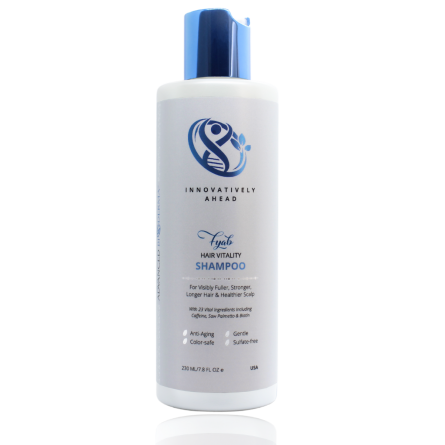Your skin is your body’s largest organ, and it is exposed to a wide range of environmental factors every day. Aging is a natural process that affects all of us, and it can manifest in many ways, including our skin. As you age, it becomes more difficult for your skin to maintain its natural complexion and repair itself after exposure to these elements, including a loss of elasticity. There are several factors that contribute to these changes, and in this blog post, we will explore the common causes of aging skin.
What is Aging Skin?
Aging skin is a natural process that occurs as we grow older. It refers to the changes that happen in the skin because of the aging process, such as a loss of elasticity, wrinkles, fine lines, and age spots. These changes can make the skin appear dull, dry, and less vibrant. Aging skin occurs when your skin becomes thinner, veins and bones can be seen more easily and it shown by lines on the forehead lines and wrinkles around the eyes, also known as crow’s feet, fat below the chin, and the general sagging of the skin in general.
As we age, our skin's natural production of collagen and elastin, two proteins that give skin its elasticity and youthful appearance, begins to slow down. This results in a loss of firmness and elasticity, making the skin more prone to wrinkles and sagging. In addition to the decrease in collagen and elastin production, other changes occur in the skin as we age. The skin becomes thinner, drier, and more fragile, which can lead to increased sensitivity and a higher risk of skin damage.
Common Causes of Aging Skin
Environmental Factors
Environmental factors such as sun exposure, pollution and extreme temperatures can contribute to aging skin. These factors can damage the skin's natural barrier and cause it to become dry, cracked, and prone to wrinkles.
Exposure to the sun's harmful UV rays is one of the most significant causes of aging skin. UV rays can damage the skin's cells and tissues, leading to a loss of essential proteins in the skin such as collagen and elastin, that give skin its elasticity and youthful appearance.
Exposure to pollutants in the air, such as ozone, smoke, and other chemicals, can also contribute to aging skin. Pollutants can cause inflammation, which can damage the skin's natural barrier and lead to dryness, fine lines, and wrinkles.
Extreme temperatures, humidity, and wind can all contribute to aging skin. Cold, dry air can cause the skin to become dry and cracked, while hot, humid weather can cause the skin to become oily and more prone to acne. Exposure to wind can also lead to dryness and irritation.
Diet
The skin requires certain nutrients, such as vitamins A, C, and E, zinc, and omega-3 fatty acids, to function properly. A poor diet that is deficient in these nutrients can cause the skin to become dry, dull, and more prone to wrinkles and fine lines.
A diet that is high in processed foods, refined sugars, and saturated fats can cause inflammation. Inflammation can damage the skin's natural barrier and lead to the breakdown of collagen and elastin, which are essential proteins for maintaining youthful-looking skin. A diet that is low in water-rich foods can also lead to dehydration, which can cause the skin to become dry and lose its elasticity.
Poor diet can contribute to aging skin by depriving the skin of essential nutrients, increasing inflammation and oxidative stress. Oxidative stress is an imbalance of antioxidants and free radicals. This can cause cell damage. To maintain healthy, youthful-looking skin, it's important to eat a diet that is rich in fruits, vegetables, whole grains, and lean protein sources, and to limit consumption of processed foods, refined sugars, and saturated fats.
Stress
In addition to these factors, stress can also have a detrimental effect on your skin. Stress manifests itself in many ways on the body; one of those ways is through acne breakouts which can be caused by hormonal changes as well as an overactive sebaceous gland that produces more oil than necessary (or desired).
Chronic stress can cause our bodies to release cortisol, a hormone that can contribute to aging skin. Cortisol can break down collagen, which is essential for maintaining the skin's elasticity and youthful appearance. Stress can also reduce the skin's natural barrier function, making it more vulnerable to damage from environmental factors like pollution and UV rays. This can lead to the formation of wrinkles, age spots, and other signs of aging.
Chronic stress can weaken the immune system, making the skin more vulnerable to infections and other skin problems.
Stress can also lead to lack of sleep and disrupt sleep patterns, causing poor sleep quality. This can affect the skin’s ability to recharge and regenerate which leads to the dull, tired-looking complexion.
To reduce the impact of stress on the skin, it's important to practice stress-reducing activities such as exercise, meditation, and deep breathing. Getting enough sleep, staying hydrated, and protecting the skin from environmental factors can also help to maintain healthy, youthful-looking skin.
Lack of Sleep
Sleep is essential for our bodies to repair and regenerate. A lack of sleep can cause our skin to look tired and dull, and it can also contribute to the formation of dark circles and bags under the eyes. Lack of sleep can trigger an increase in inflammatory chemicals in the body.
It can cause fluid to accumulate under the eyes, leading to puffiness and dark circles. Over time, this can cause the skin to stretch and lose its elasticity, leading to wrinkles and fine lines. With lack of sleep, your skin will become more susceptible to damage from environmental factors like pollution and UV rays. During sleep, the body produces collagen, which is essential for healthy, youthful-looking skin. Lack of sleep can slow down the production of collagen, leading to dull, tired-looking skin.
Lack of sleep can contribute to aging skin by causing inflammation, dark circles and bags under the eyes, reducing the skin's natural barrier function, causing dehydration, and slowing down skin regeneration.
If you want younger looking skin, then you need to start taking care of it now! Here is the top set for maintaining healthy, youthful looking skin throughout your life:
Youthful Restoration Set
The FYAB Youthful Skin Restoration Set is an anti-aging routine that will help you reverse the clock on aging skin. The two products, FYAB Skin Vitality Foaming Facial Cleanser and FYAB Skin Vitality Anti-Aging Serum work in synergy to visibly improve the appearance of fine lines, wrinkles, and uneven skin tone.
FYAB Foaming Facial Cleanser Gently exfoliates and removes dirt, oil, and makeup to reveal naturally flawless skin while the deep cleansing action unclogs pores and reduces oiliness to soothe skin & combat breakouts. With nourishing ingredients like Willow Bark, Citrus and Glycolic Acid.
Here are some key ingredients of FYAB Skin Vitality Foaming Facial Cleanser:
- Bilberry Extract: Soothes skin to reduce redness.
- Glycolic Acid: Exfoliates to remove dead skin cells.
- Orange Extract: Improves. appearance of fine lines & wrinkles
- Sugar Maple: Removes bacteria & dead skin build up.
- Glycerin: Deeply moisturizes dehydrated skin
- Poria Cocos Extract: Detoxifies & shrinks enlarged pores.
FYAB’s transformative rejuvenating Skin Vitality Anti-Aging Serum delivers the highest potency ingredients combined with peptides, botanical extracts, and antioxidants to enhance elasticity and firmness, while plumping and hydrating to reveal visibly smooth skin and promote a more youthful appearance.
Here are some key ingredients of Skin Vitality Aging Serum:
- Sodium Hyaluronate: Improves the appearance of wrinkles and restores skin's moisture.
- Niacinamide: Helps correct uneven skin tones & diminish fine lines & wrinkles.
- Vitamin C: Improves the appearance of wrinkles and restores skin's moisture.
- Capric Triglyceride: Combats dryness & revives skin's moisture.
- Glycerin: Deeply moisturizes dehydrated skin
- Citric Acid: Exfoliates dead skin, unclogs pores & evens skin tone.
https://fyabhealth.com/products/youthful-skin-restoration-set
Conclusion
The signs of aging skin are unavoidable. Wrinkles and fine lines develop as our brain sends out signals to the rest of the body. And this is where our Anti-Aging Set can help. We've carefully formulated a powerful combination of FYAB Skin Vitality Foaming Facial Cleanser and FYAB Skin Vitality Anti-Aging Serum that will help you fight off fine lines and wrinkles for a fresh, firmer look.
Harsh environmental factors, smoking, and prolonged stress can all lead to premature aging of the skin. Coupled with the natural effects of aging, these factors mean that age creeps up on your skin without you even noticing. Luckily, there are things you can do now to help keep your skin looking younger and healthier than ever before. The first step is understanding what's going on with your skin, why it's changing, and how to handle each situation specifically. Our Anti-Aging Set acts as a skin treatment to help reverse the signs of aging skin and overall help keep your complexion healthy for years to come.
In conclusion, there are several common causes of aging skin, including genetics, sun exposure, lifestyle factors, hormonal changes, environmental factors, stress, lack of sleep, dehydration, free radicals, and age. While some of these factors are beyond our control, there are several things we can do to help prevent or reduce the signs of aging skin, such as wearing sunscreen, staying hydrated, eating a healthy diet, getting enough sleep, and avoiding smoking and excessive alcohol consumption.
https://fyabhealth.com/products/youthful-skin-restoration-set
References
Yegorov, Y. E., Poznyak, A. V., Nikiforov, N. G., Sobenin, I. A., & Orekhov, A. N. (2020). The Link between Chronic Stress and Accelerated Aging. Biomedicines, 8(7). https://doi.org/10.3390/biomedicines8070198


